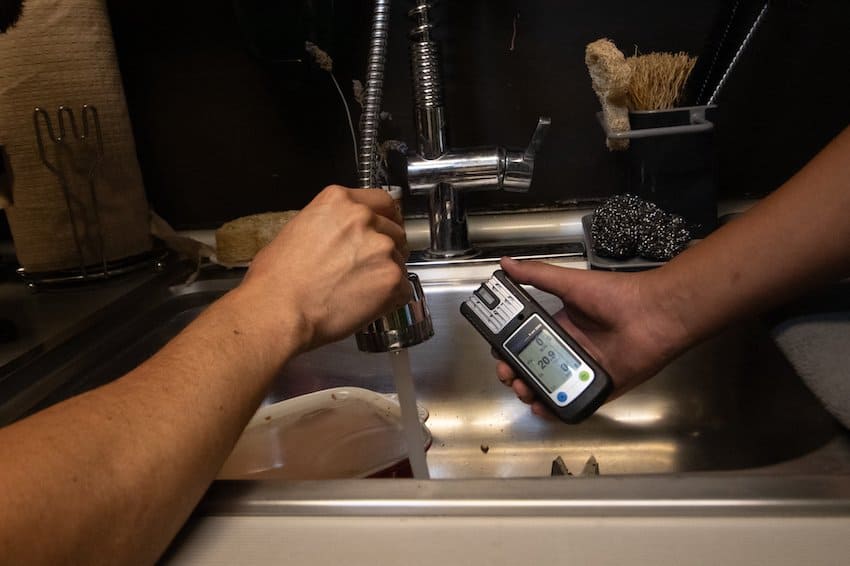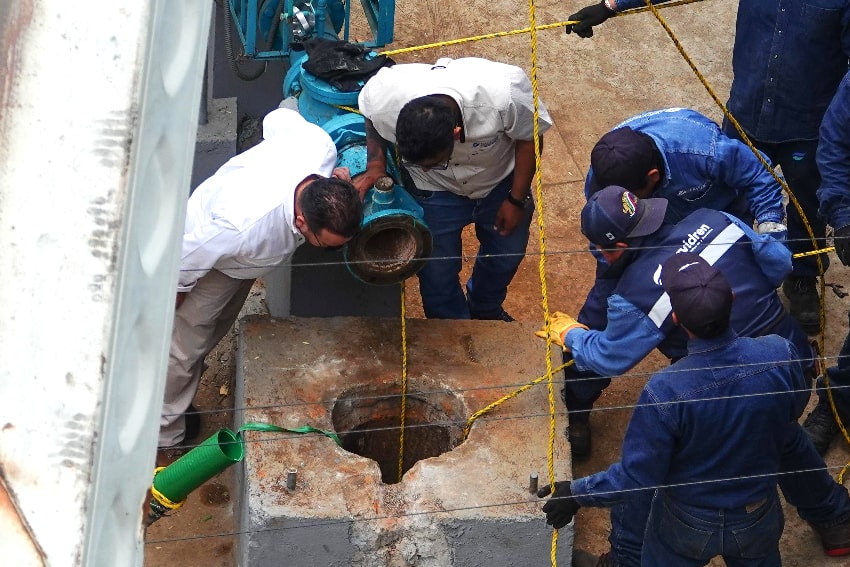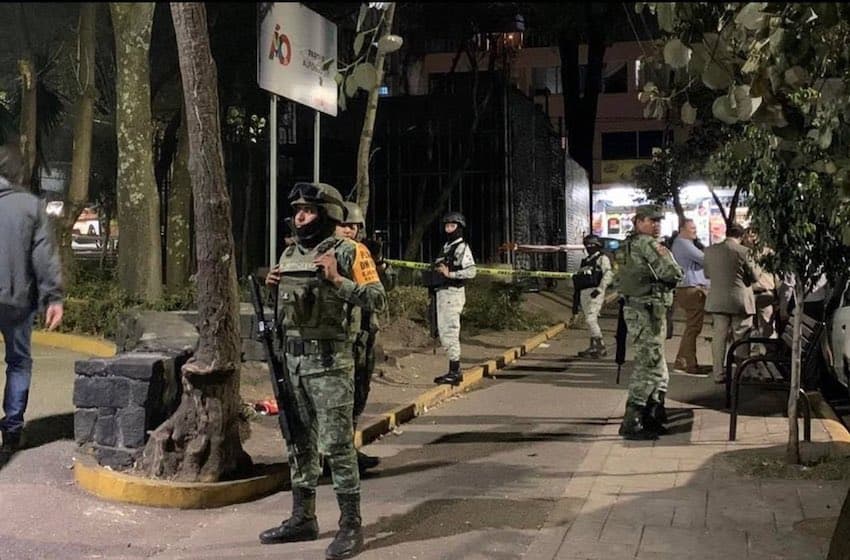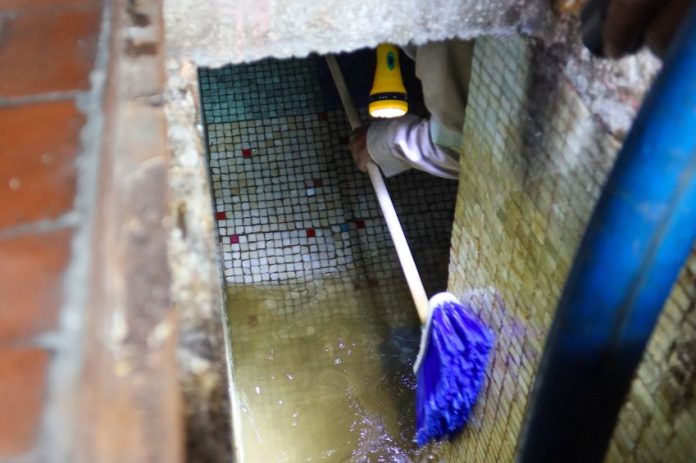Mexico City water authority Sacmex has filed a complaint over what it called “events appearing to be the crime of sabotage” that may have caused the contamination of water in the borough of Benito Juárez.
Residents of several Benito Juárez neighborhoods began complaining about foul-smelling tap water in late March. Neighbors initially suspected gasoline had contaminated the water, but the Mexico City government said that industrial oils and lubricants were to blame.

On Thursday, Sacmex released a statement announcing that “with the aim of clarifying the events” and assisting the “relevant investigations,” it filed a formal complaint on Wednesday with the Mexico City Attorney General’s Office (FGJ) over “events appearing to be the crime of sabotage after the discovery of a degraded oil compound in water extracted from the Alfonso XIII well in the Álvaro Obregón borough.”
That well, Sacmex noted, has been identified as the source of the contaminated water supplied to neighborhoods in the northwestern section of Benito Juárez.
The water authority didn’t go into detail about the exact nature of the suspected sabotage, but its statement included an extract from the complaint presented to the FGJ which said that it is presumed that “criminal behavior” led to the contamination of the water supply.
Sacmex called on investigative police to carry out an “exhaustive investigation into the events that gave rise” to its complaint.

The water department requested that police carry out an inspection of the well in question, locate “possible witnesses” who could corroborate that the water system has been “hindered” and apprehend the “possible” culprits.
Sacmex’s filing of a criminal complaint came six days after President Andrés Manuel López Obrador appeared to rule out the possibility that the water contamination in Benito Juárez was the result of sabotage.
“There are those who say that there could have been the intention to throw fuel in the well. There is no evidence for that,” the president said on April 11.
Mexico City Risk Management and Civil Protection Minister Myriam Urzúa said in a radio interview on Friday that Sacmex’s presentation of the complaint was “very important,” but acknowledged that sabotage is not the only possible cause of contaminants being released into the water supply.
However, sabotage is “one of the strongest lines of inquiry we have,” she said.
López Obrador acknowledged last week that a leak in a petroleum pipeline — possibly caused by fuel thieves or earthquakes — could be the cause of the contamination. However, he noted that inspections hadn’t detected any leaks.

Scientists affiliated with the Metropolitan Autonomous University said this week that they had detected “organic compounds derived from petroleum” in water samples from Benito Juárez, but the university itself subsequently declared that the results “aren’t yet conclusive” and questioned the “rigor and precision” of the academics involved.
The Mexico City government hasn’t yet announced the results of new official lab tests, but Urzúa reiterated on Friday that the cause of the contamination of the water, based on testing completed to date, “is not gasoline.”
The minister said just over a week ago that residents in the affected Benito Juárez neighborhoods, including Del Valle, Nápoles and Nochebuena, could expect to have contaminated water coming out of their faucets for another two weeks even though said water was no longer entering the system.
Urzúa said Friday that the gasoline smell of the water coming out of taps had “notably” decreased and indicated that a supply completely free of contaminants would resume within the expected timeframe.
Sacmex this week once again warned residents of the borough not to drink foul-smelling water, nor use it to brush their teeth or give it to pets.
Some Benito Juárez residents have reported skin and eye problems due to contact with the contaminated water.
Mexico City Mayor Martí Batrés has also advised residents to not consume the water.
“The water from your taps should only be used for washing dishes, washing cars, cleaning floors and patios and for flushing your toilets,” he said last weekend.
With reports from Milenio, El País and El Financiero
